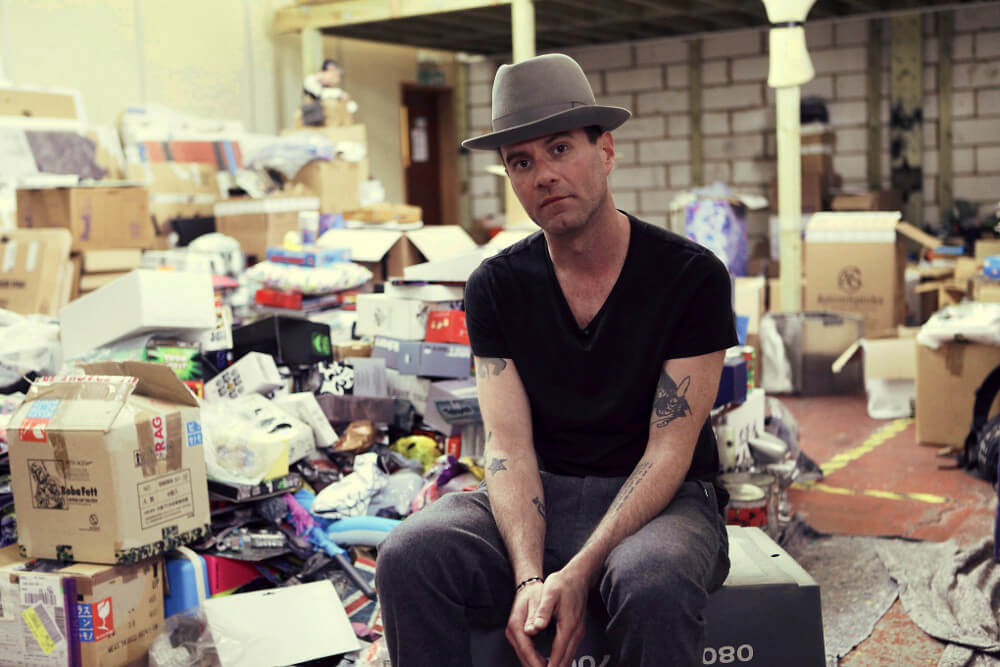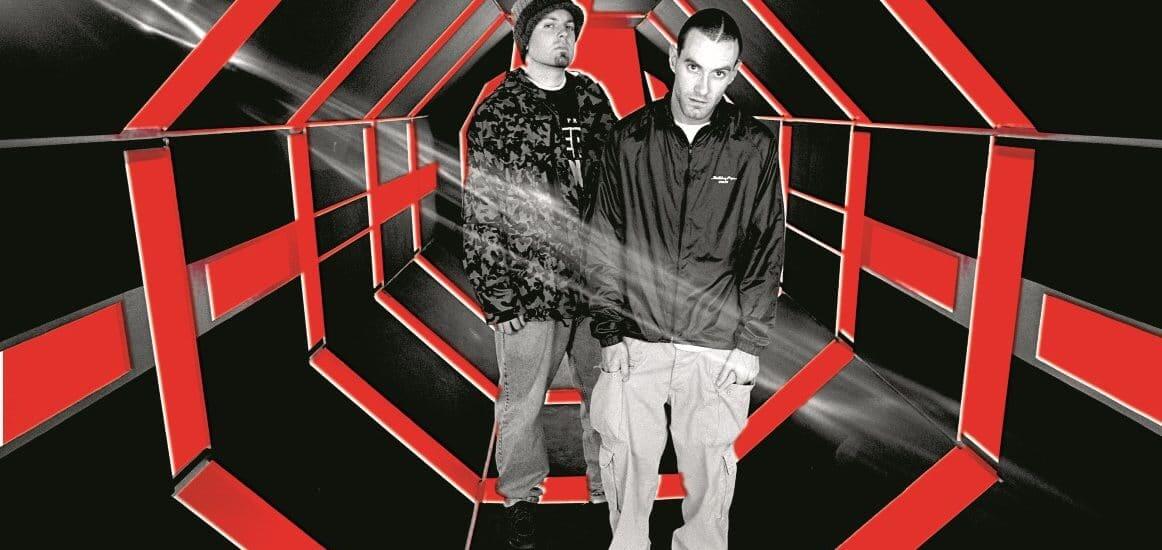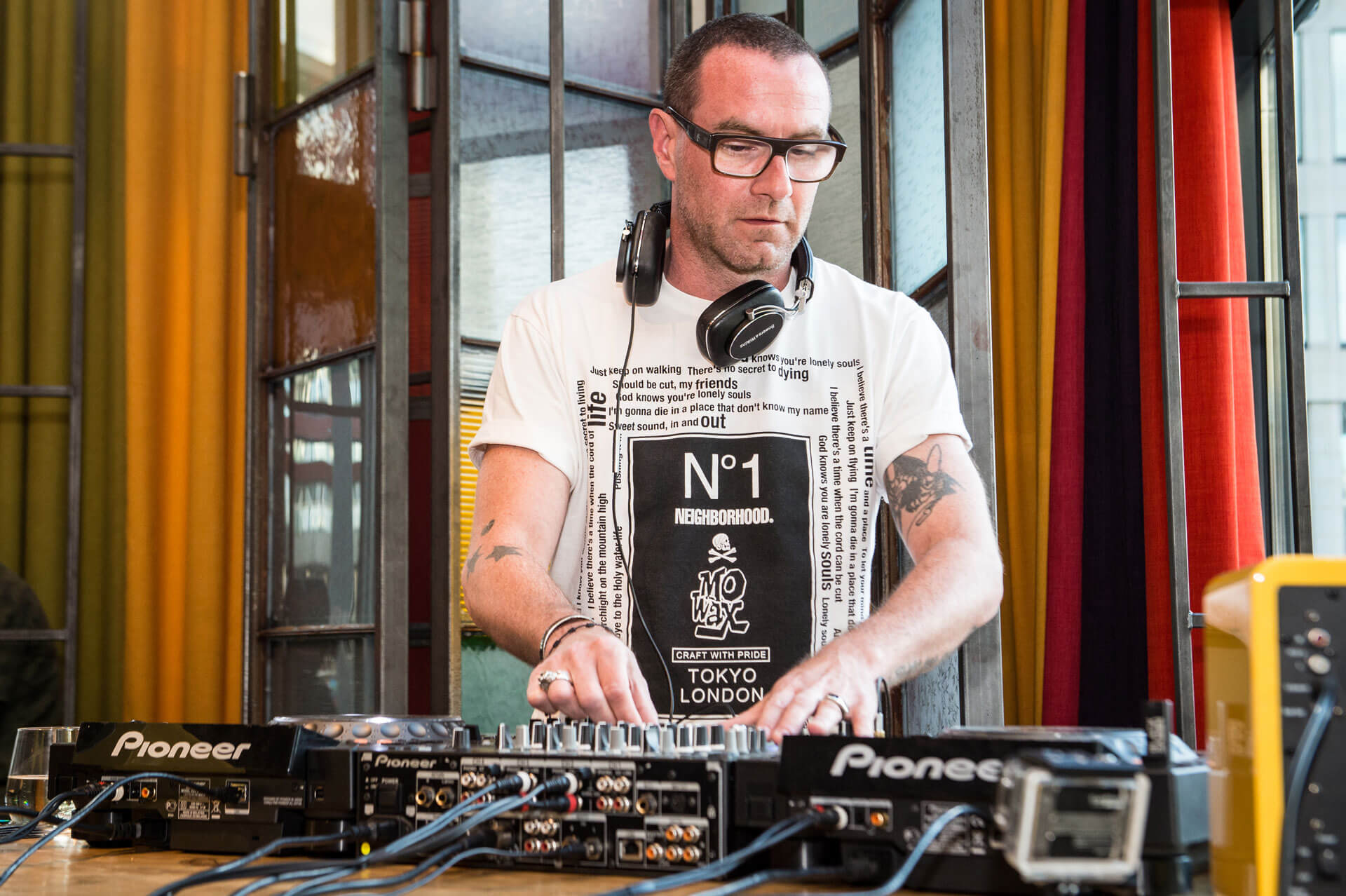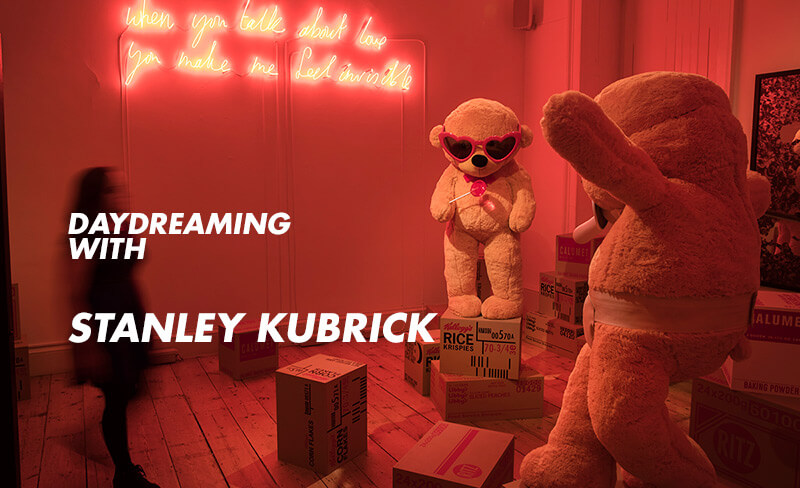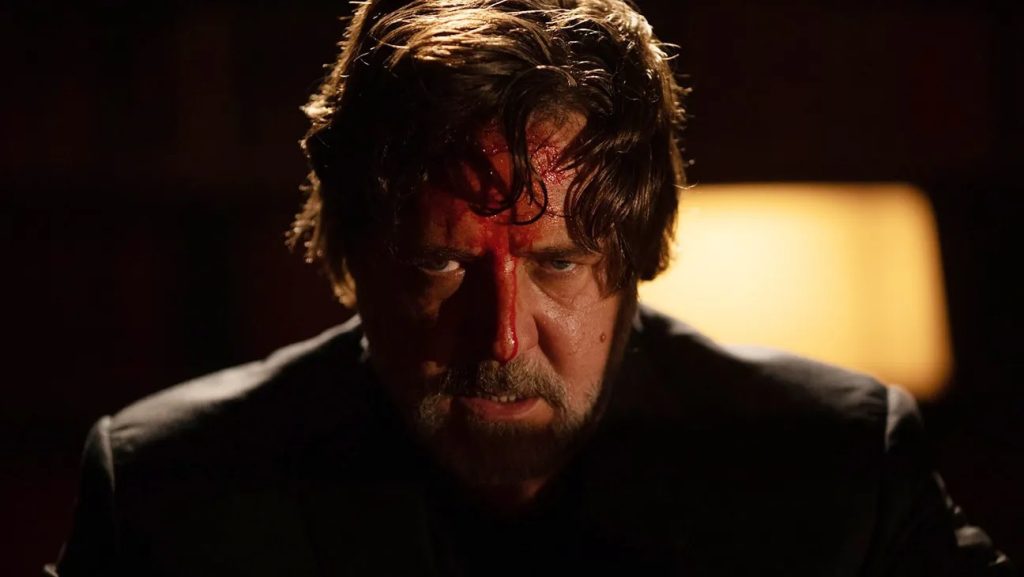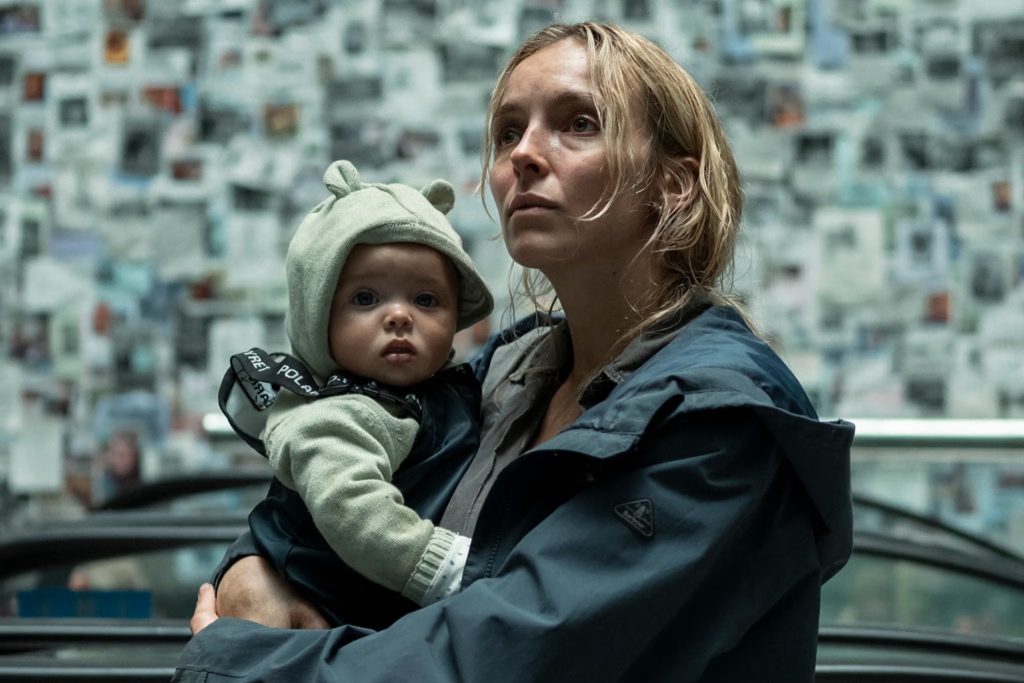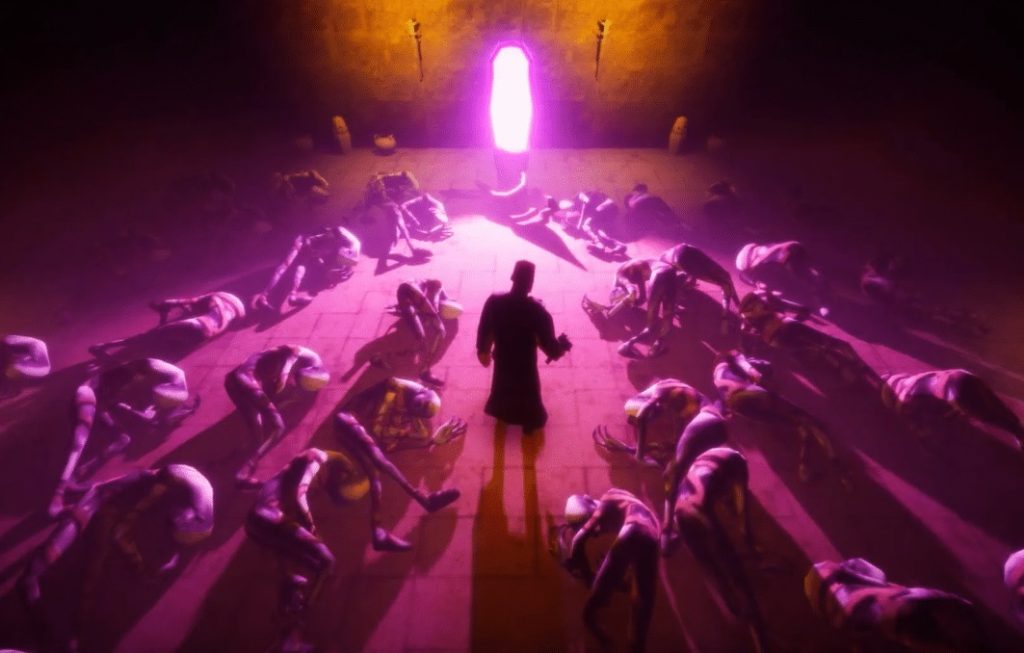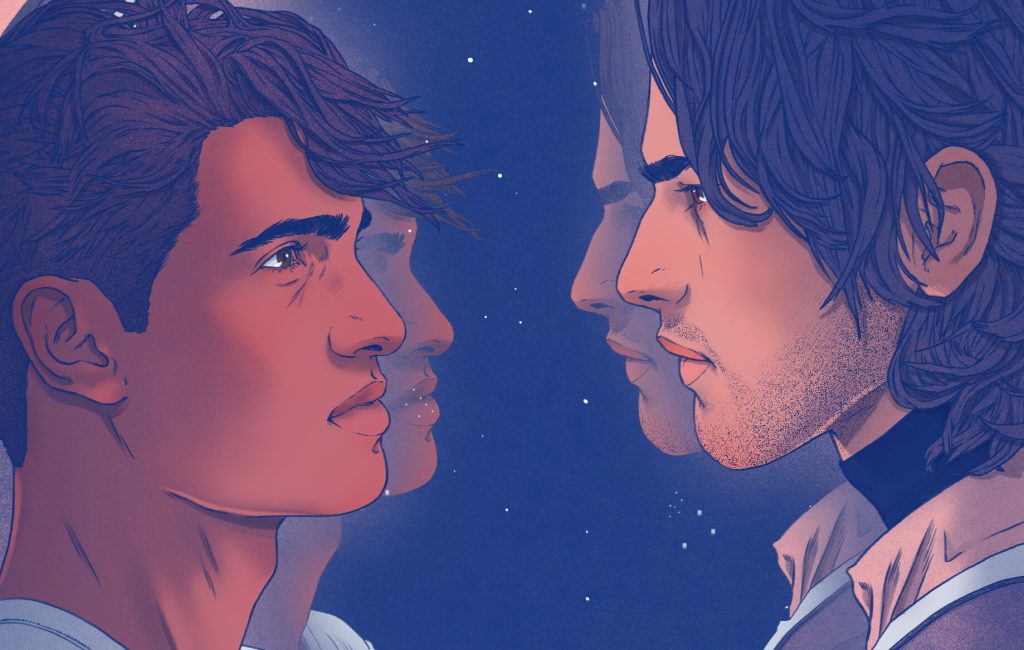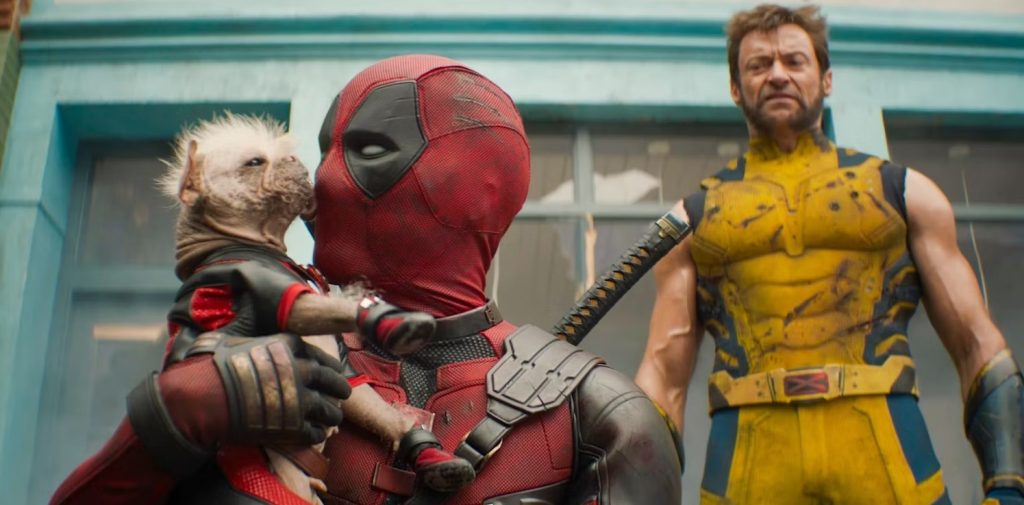James Lavelle thrust himself into the musical spotlight in the early ‘90s with his game-changing style that infused a whole slew of musical genres and got the toes tapping of many a listening ear. At the age of just eighteen, Lavelle founded the Mo’ Wax record label and would then go on to found UNKLE with DJ Shadow. It wasn’t all smooth sailing for Lavelle, UNKLE, or Mo’Wax, however, and some hard and devastating lows were around the corner; themselves to eventually be followed by some further highs. Chronicling these peaks and valleys, Matthew Jones’ stunning The Man from Mo’Wax goes in-depth on both the most successful and the most testing of times in Lavelle’s career and life, complete with input from a host of the key players involved in that period. With the documentary in select cinemas from August 31st ahead of a September 10th home release, we caught up with the truly fascinating Lavelle to discuss all of this and much, much more.
STARBURST: First and foremost, how did The Man from Mo’Wax even come about?
James Lavelle: It’s a weird one. It started with my ex-wife – my wife at the time – and it sort of started as a series or documentaries or blogs. That’s what the idea was. Suddenly, I was presented with the idea of making a documentary. It was one of those things where, “Yeah, cool, sounds like a good idea.” Then it took on a life of its own; it became a bit of a snowball, grabbed momentum and started rolling. Before I knew it, there was a documentary being made about me. Mack [producer M.J. McMahon] and Matt [director Matthew Jones], who were also involved, wanted to finish it. This is like eight years ago, nine years ago – it started ten years ago – and I sorted of said on the basis that I wouldn’t work with my ex-wife on it. If it was something that they wanted to continue then I’d look at that. They sort of came up with that scenario where it could continue, and I didn’t feel at the time it was being made it was a documentary about what was going on at the time, which was the War Stories and Where Did the Night Fall time. I didn’t feel that that would make a very good documentary, so I then gave them access to a massive part of my archive. That’s when it really started to take more shape. That was probably about seven years ago, and here we are now. It was finished a couple of years ago, to be honest with you. That’s the nature of films and film festivals and funding and distribution and all that stuff. It’s not my film, I didn’t direct it, I’m not producing it or financially involved in it. I just felt that there was a point where this beast is going to come out one way or another. Do you want to try and be more creatively involved and shape it with hopefully more of the right subject matter? Not shaping it in the sense of me saying what can’t be in the documentary, hence why it is what it is. For me, it’s quite difficult as it’s not a film I’d have made. But maybe that’s part of what’s interesting to other people about it.
It is very much warts ‘n’ all, as in it’s just you laid bare and very vulnerable at times. There must be some sort of trepidation involved in putting yourself out there like that, especially with how blunt and open the film is?
Yeah, I found it very difficult. I think I’m more at ease with it now. You can imagine, when I started to really see the rough cuts about four years ago, there were certain things I wasn’t happy about being in there, which I did change. I think there has to be an element of alluding to but not actually always seeing, because actually it then becomes rather boring; certain things on a personal level or on a factual level that I felt were inappropriate or we needed more work on. Again, like I said, it wasn’t something that I could dictate; I just tried to navigate it in a way that I could support this if you wanted me to. Therefore, if I do then we need to find some sort of common ground. I like the film, I think the film has some amazing moments, I think the beginning of the film – the ‘90s stuff – is very good. The third quarter, I don’t like. That’s the Night Fall period, which I think they still didn’t get right, but it is a lot better than it was. I just think it gets a bit boring. And I think there’s a lot of stuff that’s not in there. When people talk about it being the definitive Mo’ Wax documentary, it isn’t; there are many people who aren’t in this documentary. It plays on the fact that there’s these constant broken relationships, but yet I still work with people like Trevor Jackson, Fraser Cook, Ben Drury; many people who were very involved with Mo’ Wax but who aren’t in that documentary. It’s a documentary that basically shows from the perspective of me and [DJ] Shadow, and that isn’t what Mo’ Wax was about. Shadow was part of it, but he didn’t define Mo’ Wax. And he also didn’t define UNKLE. I find sometimes that it’s very centred around Shadow. That’s not really for me personally the journey that it’s been for a very, very long time. But, I think in the sense now, going through it, where it’s got to, the reaction to it, and we live in a very different world… In the last few years, mental health, people are looking at DJs and what’s happened to DJs. Recently, what happened with Avicii really touched a nerve with me. I didn’t know him, I wasn’t a fan particularly of his music, but what I went through as a kid and what people go through now, I went through that without any support, without any mental support. I sort of look at that and think, without trying to sound too morbid, but I’m alive, I’m here, I’ve managed to come out of the other side. There’s a lot of things I find difficult, and there’s a lot of things factually that aren’t in there as well.
People don’t talk about how when I left XL, I signed Nick Huggett who signed Adele. They don’t talk about the fact that the person I worked with on War Stories is now in prison for ten years for £200 million tax fraud. There were things for me factually that I would have liked to have had a bit more… it’s easy finding a pie graph of the failure of things, but people don’t know that you can do a pie graph of War Stories not selling as many copies as Pysence Fiction, but actually War Stories is a much more successful record. What it doesn’t talk about is that the record industry changed, no physical records are being sold. War Stories became one of the most licensed records in the world that year! But that is part of the story, I suppose. Part of the mythology. They want to show it in the sense of the ups and the downs of the roller coaster. For me myself, there are a lot of things, a lot of people that aren’t in that documentary. On a positive note, I think it does show a lot of the madness of the record industry at that time and what I went through. Some of that is my own fault, but what people don’t really know, and I think this maybe shines a bit of a light on it, is how it was brutal. I was put through quite brutal things. You look at now, people are able to talk about these things. When I started in the music industry, it was very male and very laddy. Dance music culture was very aggressive, it wasn’t like how it is now. It was a very football and rubeboy-led thing. It was very urban and street, very football. To be in the middle of that was very difficult. That’s something that you will never really understand. When I used to dye my hair, the abuse you’d get. Or trying to play house music when you were considered to be a hip-hop DJ, the abuse you’d get. I had to have a bodyguard at one point because people would throw bottles at you for playing house records.
That seems to be one of the major reasons why you’ve got such a huge and varied fan base, because you’re not just pinned to one genre of music. At that time, people were used to a relatively narrow range in that regard. How do you think that’s changed over the years, and what effect has the rise of digital media had on the industry from your perspective?
I’m lucky that we have a fan base that’s still engaged in the physical product. I’m lucky that I’ve also managed to navigate between other things to keep my career hopefully relatively fresh and interesting; having a career outside of a typical music arena by doing curation of soundtracks and all of the other bits and pieces that have allowed me to maintain a creative life. But it’s not easy. I didn’t have the success that many other people around me did. Unfortunately, that’s very frustrating; it’s frustrating that I have a history of being very “part of things” that have actually become hugely successful. I never made a penny off Pysence Fiction. I hired people like Nick, who signed Adele and transformed Xl, but I didn’t get anything from that. I sort of got hit with most of the failures rather than the financial benefits of some of the things that I’ve been involved with. It’s a rock ‘n’ roll business and, unfortunately, to quote Hunter S. Thompson, that’s the nature of the beast.
The Man from Mo’Wax is certainly constructed like a traditional three-act movie, highlighting the highs, the lows, and then the highs once more.
It is, and that’s what they wanted to do. They wanted to do the highs and the lows, take you up, take you down, take you back up there. Through the periods of where it’s showing everything being down, there were also some incredibly positive things going on as well. But I think that’s the nature of it being a film. I don’t think something like this, would people be interested if it was all about how amazing I was? Maybe it wouldn’t be that interesting. Most documentaries now, if they’re made by an artist, most people are very in control of every element of their careers. You look at something like the LCD [Soundsystem] documentary [Shut Up and Play the Hits], that’s a documentary about how great you are. It’s not something that I particularly care about. I care about watching something like Hearts of Darkness or Some Kind of Monster. Of course, it’s incredible to watch a documentary about how amazing somebody is, but usually you want to see somebody that is beyond amazing. When you’re watching a documentary about, say, James Brown or Pavarotti or whatever, you’re watching somebody who is the greatest in the world at what they do. You don’t watch a documentary like that to see their life or break ups of their marriages, you’re watching it more in the sense of the great things that they’ve created. This is about rock ‘n’ roll. And when I say rock ‘n’ roll, I mean the term of being in the music industry. I think it works for that reason. For me, it’s quite hard to have to see your failures and your insecurities and choices. It’s all very raw, which I found quite hard to deal with. I do feel in the last year, for various reasons and especially with what’s been going on with the change in the entertainment industry, with #MeToo, with male suicide awareness, all these horrific things – I’ve had eight people in the last eight years kill themselves – in that respect, I do sort of feel that this is kind of cathartic; it puts an end to a period of ones life. In many ways, I never want to feel like that again. I never want to do what I did. There’s many things I wish I could do again – the idea of going back to the beginning of Mo’ Wax, I would chop my own right arm off to do that! – but that time has gone. The other stuff, I don’t want that in my life. It’s a hard pill to swallow, but it has a positivity in the sense that that was then; it’s gone now, I’m not that person anymore.
Getting into the industry at such a young age, how hard did you find it to gain the trust and respect of those already established at that point in time?
It really was hard. You’re a kid, you know? So you’re treated like a kid, you have to fight your way through it. Everyone is ten years older than you, most of the people you’re around are bullies. There’s a lot of money flying around. Well, not a lot of money now. If I had Mo’ Wax now, I’d have probably sold it for £20 million, not £250,000. We live in a very different world, financially. Also, the record industry. If you’ve got a major record company now, then they’re run like an accountancy office. That wasn’t what it was like then. It was cocaine for lunch. It was great fun, but to be taken seriously was difficult. Unfortunately for me, it was all so quick. I had a window of four or five years at Mo’ Wax where it was incredibly amazing, but once the bubble burst and the relationships started breaking down, it just never really stopped. It was very difficult, very sad in some ways, but again it was just this snowball that became massive and didn’t give you chance to catch your breath. In many ways, that had a massive impact on my childhood, on my life. Since I was eighteen, I never had a childhood, I never had any time out. I had amazing experiences, but that amount of responsibility at that young an age, I wouldn’t wish it on anyone, I don’t think it’s healthy. Whilst it tells a great story and it was fun, at eighteen, nineteen, twenty, 21, you’re not an adult. You don’t know the consequences of your actions, you don’t know it’s going to end, you don’t think about the future. All you think about is the day after. Therefore, this is a great way to show young people that get involved in any creative industries, to be very mindful, to protect yourself.
Your debut album, Pysence Fiction, was massively well-received by fans, yet the music press seemed at the time weren’t so kind.
It was slammed critically. The NME review was horrific, it was awful. It was, like, one out of 10 stars. They said it was the worst collaborative record ever made! It was awful, it was horrific. Pysence Fiction was the beginning of it. Never, Never Land was okay, but they could never follow on from the idea of Shadow. So yeah, I’ve never had the best of relationships with the press in that respect. It was a very different period, a very different age. The idea of a young guy in a record company, making a record with collaborative people was seen as blasphemy. Now, it’s the foundation of pretty much every pop record in the world.
Melody Maker seemed a little bit kinder with their reviews at the time.
Yeah, we had a really good review in Melody Maker. The reason the review in NME was terrible… there’s a section of me on Jo Whiley in the film. I basically diss the fact that NME had put Robbie Williams on the front cover. I thought that Robbie Williams should be on pop magazines. There were no boundaries! And I was right, because it did destroy the music press. Once The Face put the Spice Girls on the front cover and NME put Robbie Williams on the cover, their sales went through the roof. But after that, it meant that they could never break things again. The sales would never be the same again. I think it ruined the music press, that period, the end of the ‘90s and the beginning of the 2000s. You being a journalist, if you’re working for an underground magazine that reviews films that are science-fiction, suddenly Harry Potter becomes the front cover when you’re really about Blade Runner. You’ll sell a million copies of the magazine, but then people will want that the next time. And that’s what’s happened to the music industry and creative industries in general. It became more of an industry than it did about the relevant information, breaking things.
When everybody’s got The Avengers on their front cover, things no longer have their foundations, their space. I think that was the beginning of it. NME basically destroyed me because of the reasons why I’d criticised them over Robbie Williams. And that stupid cunt in the fucking movie that they interview, telling me that I can’t be an A&R man. People forget, I set my label up to be able to put out my own records also. That’s not abnormal.
While The Man from Mo’Wax flows well, it maybe at times does lean a little too much on DJ Shadow, as if everything all fell apart because of his departure.
But that’s Matt, and he’s a fanboy of that story. That’s okay, that’s his story. That’s why to me it’s not a definitive story of my life or Mo’ Wax. It’s a snapshot and it shows a certain aesthetic, and in a certain way that’s very raw. But that’s why we’re talking now, so I’m trying to embrace it. I have a habit of the glass is always half-empty rather than half-full, and it is getting a really positive reaction. I think that it does maybe engage, it touches a nerve with people who were there at that time and who experienced that side of things. It touches a nerve that they don’t see the negativity, they just see that you can create and that you just kept trying to create. So that’s the positive I look at. But to me, it’s not like the ultimate be-all and end-all of my career, because it misses a lot of things. That’s because those things aren’t telling the story that they necessarily want to tell.
It pegs it as almost a redemption tale of sorts by the end, with you getting to direct Meltdown 2014 and then DJ Shadow returning. How big was that Meltdown exhibition for you?
It was one of the most wonderful experiences that I’ve ever had. There was a lot of anxiety about it, where I felt that I was in that chain of people that had been involved before. Again, I think that what had always been part of it, not necessarily out of choice, but I always seemed to be a bit of a guinea pig. And thank god for Jane [Beese] and Meltdown, that they saw me in the way that they did. It was definitely the first time that they’d tried to do it in the sense that it wasn’t about a traditionally incredibly successfully celebrated artist. It was about somebody that was more a sort of cultural curator. But, I think that’s why it was fucking good, because it wasn’t about me, it was about the people that were involved. It’s partly about my choices, but the reason that that Meltdown I think for me was one of the best experiences that I’ve had at Meltdown, is it just encompassed a lot about London and what’s great about London. Even though it was international and it wasn’t all London artists, it was about music that had had an influence on London and the UK. I think it created a very good social experience in London, and I have been to the various Meltdown events since and I don’t think it’s been the same vibe on that level. That’s not about me being egotistical, I just think it needed to happen. Something needed to represent that time, both of past, present, and the future. There was a lot of things in there, so it wasn’t all retrospective. It was a mixture. It was also going back to Grandmaster Flash and stuff like that. Having that going on, the whole site was alive. DJing, there’s 5,000 people outside the Houses of Parliament, Higher State of Consciousness playing. There’s nothing quite like that.
We’ve talked about the 2014 Meltdown exhibition, but you also did the Daydreaming with Stanley Kubrick exhibition. How much of an honour was it to be asked to oversee that?
It’s one of the greatest accolades of my life, to be able to work with his family on that exhibition. It was amazing, mind-blowing. When I was younger, I wrote a letter to him to try and get him to direct the video for Lonely Soul. And they remembered, and they wanted that spirit for the exhibition. To work with some of the artists that I did, it was unbelievable. Some of the biggest artists in the world, from Thomas [Bangalter] from Daft Punk, to Anish Kapoor. It was pretty incredible for me. To have that and to do each side of the Southbank over a period, that was pretty special to me.
We have to put you on the spot then. Have you got a single favourite Kubrick film?
[Without missing a beat] 2001: A Space Odyssey.
You’ve recently worked on a new TV show, Trust. How was that as an experience?
Just working with Danny [Boyle] was amazing. He’s an amazing, amazing guy, who was again really incredible. It was the end of last year, the autumn of last year into the beginning of this year. He’s a very wonderful and special man, and I’d love to work with him again. It was an incredibly brilliant experience, and yeah, it’s coming out here in the autumn on BBC 2, I think.
Over the years, your music has been featured on a whole load of movies, video games, and TV shows. Some of it is simply using your songs, while for other projects you’ve composed new material. How different is it to create new songs tailored to such a particular project?
You’ve got to direct the motion that you’re reacting to. So when you write a song or a piece of music for a record, you’re sort of creating a motion. It’s a different way of making music. You’re sort of creating something in your head. Whereas with this, you’re creating something based on the picture. So it’s a much more direct way of working, because you’ve got an emotional sense of style or a period, whatever it may be, that you’re setting it against. The reference is much clearer.
One final question. If you could go all the way back to visit young James Lavelle, just setting up Mo’ Wax, what advice would you have for him?
Oh man, get a good lawyer! And just slow down, just take care of business, man. Pace yourself. And drugs are a bad thing [laughs]. Well, they’re not, but they can be. Everything in moderation. As the famous line on the Temple of Apollo, “nothing in excess, everything in moderation.”
The Man from Mo’Wax is in select cinemas from August 31st, with a home release to follow on September 10th. For further information, head on over to www.themanfrommowax.com.

